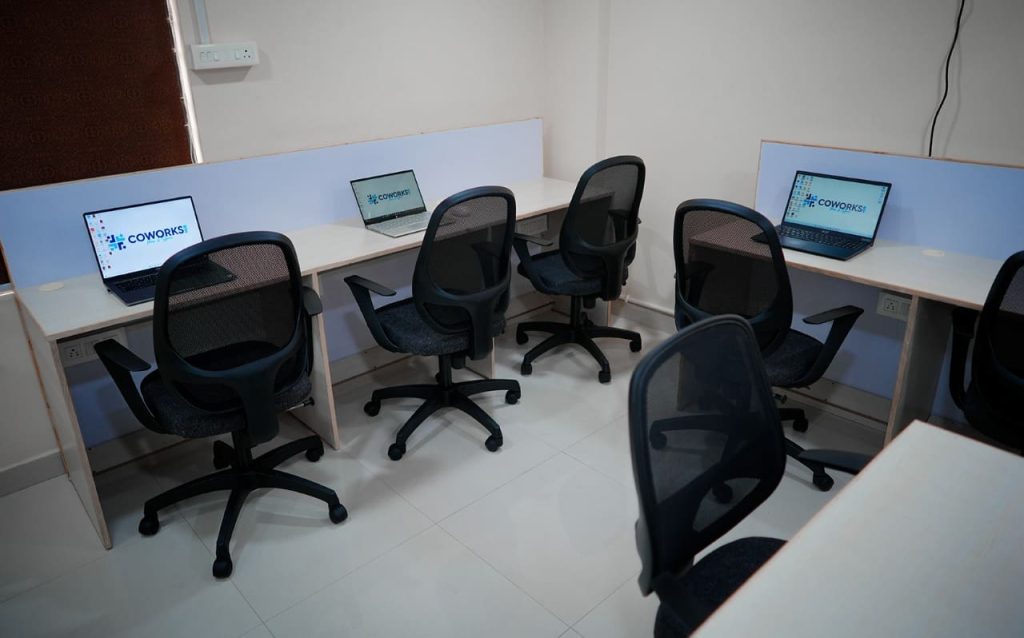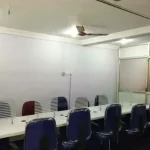Introduction to Coworking Spaces
Coworking spaces have emerged as a popular alternative to traditional office environments, offering flexibility, community, and a range of amenities to freelancers, remote workers, startups, and even established companies. These shared workspaces are designed to foster productivity and collaboration, providing a professional setting without the long-term commitment of a conventional lease. However, as their popularity grows, so do safety concerns. This article explores the various aspects of safety in coworking spaces, addressing physical security, health and wellness, and data protection.
Physical Security in Coworking Spaces
Access Control and Surveillance
One of the primary concerns regarding the safety of coworking spaces is physical security. Effective access control is crucial to ensure that only authorized individuals can enter the premises. Many coworking spaces implement keycard or biometric access systems to manage entry, which helps prevent unauthorized access and enhances overall security.
Additionally, surveillance systems such as CCTV cameras are commonly used to monitor activities within the coworking space. These cameras are strategically placed in common areas, entrances, and exits to deter potential security breaches and provide evidence in case of any incidents. According to Venture X, strict protocols for personal and health-related safety are in place to ensure a secure environment.
Onsite Security Personnel
Some coworking spaces employ onsite security personnel to further enhance safety. These security guards are responsible for monitoring the premises, responding to emergencies, and assisting members with any security concerns. The presence of security personnel can provide an added layer of protection and reassurance for members, especially in larger coworking spaces or those located in high-traffic areas.
Emergency Preparedness
Emergency preparedness is another critical aspect of physical security in coworking spaces. This includes having clear emergency exits, well-marked evacuation routes, and accessible fire extinguishers. Regular safety drills and training sessions can help ensure that members are aware of emergency procedures and know how to respond in case of a fire, earthquake, or other emergencies. The Office Pass highlights the importance of fire safety precautions and emergency exits in maintaining a safe coworking environment.
Health and Wellness in Coworking Spaces
Cleanliness and Hygiene
Maintaining cleanliness and hygiene is essential for ensuring the health and wellness of members in a coworking space. Regular cleaning and sanitization of workspaces, common areas, and restrooms are necessary to prevent the spread of germs and illnesses. Many coworking spaces have implemented enhanced cleaning protocols, especially in light of the COVID-19 pandemic, to provide a safe and hygienic environment for their members.
Air Quality and Ventilation
Good air quality and proper ventilation are crucial for creating a healthy workspace. Poor air quality can lead to various health issues, including respiratory problems and decreased productivity. Coworking spaces should ensure that their HVAC systems are well-maintained and that there is adequate ventilation throughout the premises. Some spaces even invest in air purifiers to further improve air quality.
Wellness Programs and Amenities
To promote overall wellness, many coworking spaces offer wellness programs and amenities such as fitness centers, yoga classes, and meditation rooms. These facilities provide members with opportunities to stay active, reduce stress, and maintain a healthy work-life balance. Encouraging regular breaks and offering wellness resources can contribute to a healthier and more productive work environment. ChargeSpot emphasizes the importance of clear walkways and removing loose wires to prevent accidents and injuries.
Data Protection and Cybersecurity
Secure Internet Connections
In today’s digital age, data protection and cybersecurity are paramount concerns for anyone using a coworking space. A secure and reliable internet connection is essential for protecting sensitive information and preventing cyberattacks. Coworking spaces should provide encrypted Wi-Fi networks and regularly update their security protocols to safeguard against potential threats.
Data Privacy Policies
Coworking spaces must also implement data privacy policies to protect the personal information of their members. This includes ensuring that any data collected, such as membership details and payment information, is stored securely and used in compliance with relevant data protection regulations. Members should be informed about how their data is being used and have the option to opt out of data collection if they choose.
Cybersecurity Measures
Effective cybersecurity measures, such as firewalls, antivirus software, and regular system updates, are crucial for protecting the digital infrastructure of a coworking space. Members should also be educated about best practices for cybersecurity, such as using strong passwords, avoiding public Wi-Fi for sensitive transactions, and being cautious of phishing attempts. Resources like The Receptionist provide valuable tips for securing coworking spaces, including implementing alarm systems and offering privacy screens.
Conclusion
Coworking spaces can offer a safe and productive environment for professionals when proper safety measures are in place. By addressing physical security, health and wellness, and data protection, coworking spaces can create a secure and supportive atmosphere for their members. While no environment is entirely risk-free, the implementation of comprehensive safety protocols and ongoing vigilance can significantly mitigate potential risks. As coworking spaces continue to evolve, prioritizing safety will remain essential to their success and the well-being of their members.



